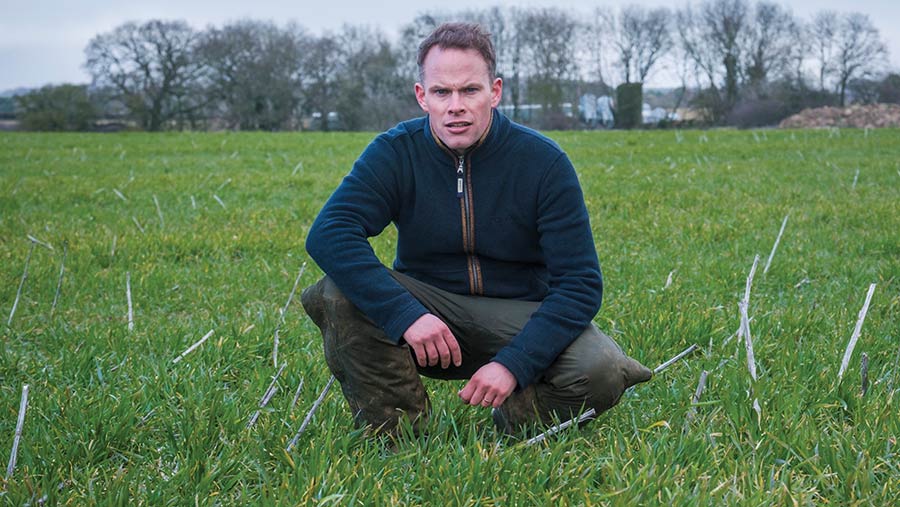Farmer Focus: Battling slugs as crops take a pounding
 Robert Scott © Jason Bye
Robert Scott © Jason Bye It feels like the main focus for the past couple of weeks has been battling slugs. Any spare time was used for planting crops.
We have already lost a few early skirmishes, with a couple of oilseed rape fields succumbing to a combination of slugs and flea beetle.
The stubble turnips have taken a pounding too, and I am determined that our cereals will not follow suit.
See also: Video: Grower completes world’s first Capulet bean harvest
The past fortnight was spent pre-bating oilseed rape stubble before drilling. Pellets were also applied with our drills at planting and were rolled afterwards.
I may be trying to farm without insecticides, but molluscicides are frustratingly still very much part of the system.
It was inevitable slugs would be the next headache, with my system of farming providing the perfect habitat for these slippery foes.
The need for extra variable products, such as ferric phosphate, is something I have yet to overcome with a reduced tillage system. It also sits uncomfortably with my environmental conscience.
Each time I reduce establishment cost (be that time, labour, machinery or diesel), I seem to spend nearly as much money again by applying extra products such as additional herbicides, starter fertilisers, biology or, in this case, molluscicide, to make up for any shortcomings.
Thankfully this extra spending is variable, and in my mind at least will be offset against SFI options in time.
I’m very conscious, though, that if not kept in check, we could inadvertently rob Peter to pay Paul (or rob Shell to pay Adama in my case).
My gut feeling is that a low-horsepower, low-energy system is right for extensive agriculture in post-Brexit lowland Britain, but further fine-tuning to our system is needed as it evolves.
A rotational re-shuffle would be the simplest solution to my reliance on ferric phosphate.
The trick will be making sure any adjustments involve stacking enterprises to improve profit, either with livestock or environmental income.
After all, we do farm to make a profit – something too often forgotten.
Perhaps even a return to the Norfolk four-course rotation would achieve all of this, with a little help from SFI.

